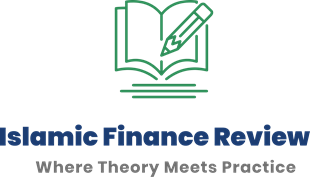
Islamic Finance & AI: Transforming Shariah-Compliant Financial Services in 2025
- Post by: wp-islamicfinancereviewcouk
- July 29, 2025
- No Comment
🕌 Introduction
Artificial Intelligence (AI) is rapidly transforming the global financial landscape—and Islamic finance is no exception. With AI now embedded in services ranging from customer support to investment decision-making, the Islamic finance industry faces a vital question: how can we ensure these tools uphold Shariah values?
In July 2025, the Islamic Development Bank (IsDB), in collaboration with leading scholars, proposed a framework for AI Taqwa Compliance—a bold initiative to align AI usage with Islamic ethical and legal foundations.
“And He is with you wherever you are. And Allah, of what you do, is Seeing.”
— Surah Al-Hadid 57:4
📘 What Is AI Taqwa Compliance?
AI Taqwa Compliance introduces a structured framework that governs how AI should be developed and used in Islamic financial institutions. Specifically, it calls for:
-
Exclusion of haram (prohibited) content in algorithmic outputs
-
Transparent, auditable AI decision-making processes
-
Privacy protection aligned with the principle of sitr (covering faults)
-
Training datasets that avoid promoting riba-based logic or unethical lending
This framework aims to ensure that AI serves as an enabler of justice (adl) and trust (amanah) within Shariah-compliant systems.
📊 Opportunities and Ethical Risks
Islamic finance can benefit significantly from AI, yet these benefits must be weighed against potential ethical breaches.
| 💡 Opportunity | ⚠️ Ethical Risk |
|---|---|
| Robo-advisors for halal investing | May lack proper ijtihad or fatwa reasoning |
| AI credit scoring for Islamic microfinance | Risk of data bias and financial exclusion |
| Smart contracts in Sukuk | Could overlook necessary Shariah flexibility |
| AI-based underwriting for Takaful | May misalign with mutual risk-sharing principles |
“Indeed, Allah commands justice and the doing of good, and giving to relatives, and forbids immorality, and bad conduct, and oppression.”
— Surah An-Nahl 16:90
📌 Strategic Recommendations for Ethical AI in Islamic Finance
To move forward responsibly, scholars and technologists suggest the following actions:
✅ Create Joint Ethics Councils: Bring together AI developers and Shariah experts to co-review algorithms.
✅ Issue Fatwas on AI Use Cases: Clarify what roles AI can play in legal, investment, and underwriting processes.
✅ Mandate AI Audits: Ensure transparency and identify non-compliant decision trees or datasets.
✅ Use Certified Data: Develop Shariah-approved datasets that exclude haram content and riba-based models.
✅ Develop Halal AI Certification: Create third-party accreditation for AI tools used in Islamic financial services.
These steps would promote public trust, uphold ethical standards, and drive innovation that reflects Islamic values.
🌍 AI and the Future of Halal Finance
Looking ahead, the global halal economy is projected to surpass $7 trillion by 2030. Therefore, integrating AI ethically isn’t just desirable—it’s essential. Poorly governed AI systems could unintentionally endorse riba, promote uncertainty (gharar), or exclude underserved populations.
On the other hand, well-structured AI systems offer an opportunity to democratize access to Islamic finance, enhance zakat distribution, and build scalable Shariah-compliant services across emerging markets.
🔎 Conclusion
The emergence of AI Taqwa Compliance marks a turning point in the ethical evolution of Islamic finance. Rather than resisting technological progress, the industry is being called to lead the conversation on value-driven innovation.
If implemented with care, this framework could position Islamic finance as a global leader in responsible, inclusive, and God-conscious fintech.
At Islamic Finance Review (IFR), we are committed to monitoring this development and sharing insights that will shape the next chapter of faith-based financial innovation.
📚 References
-
Islamic Development Bank. (2025). AI Taqwa Compliance White Paper. https://www.isdb.org
-
AAOIFI. (2024). Governance Guidelines on Emerging Technologies in Islamic Finance. https://aaoifi.com
-
Qur’an – Surah Al-Hadid 57:4, Surah An-Nahl 16:90
